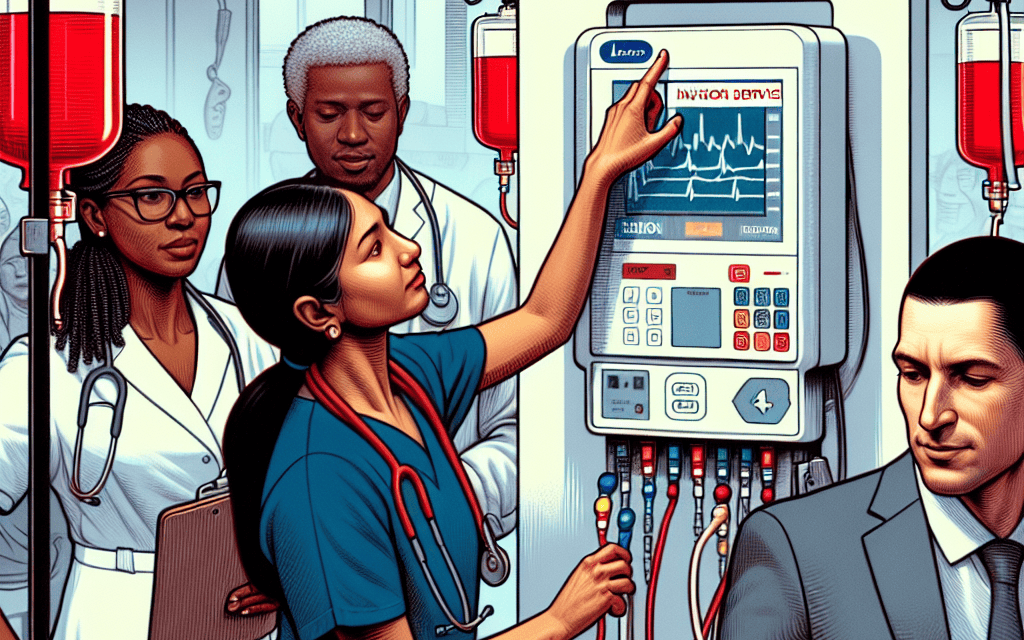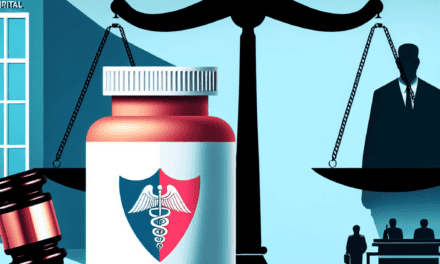CVS Health Reduces Infusion Services Amid Industry Challenges

In recent years, CVS Health has been a significant player in the healthcare industry, offering a wide range of services that extend beyond traditional pharmacy operations. One of these services, infusion therapy, has been a critical component of their healthcare offerings. However, due to various industry challenges, CVS Health has decided to reduce its infusion services. This article delves into the reasons behind this decision, the impact on the healthcare industry, and the future of infusion services.
Understanding Infusion Services
Infusion therapy involves the administration of medication through a needle or catheter. It is typically used when oral medications are not effective or feasible. Infusion services are crucial for patients with chronic conditions such as cancer, autoimmune diseases, and infections that require long-term intravenous treatment.
CVS Health has been a leader in providing home infusion services, which allow patients to receive treatment in the comfort of their homes. This service has been particularly beneficial for patients who require frequent infusions and prefer to avoid hospital visits.
Despite the benefits, infusion services are complex and require significant resources, including specialized staff, equipment, and regulatory compliance. These factors contribute to the challenges faced by CVS Health in maintaining and expanding their infusion services.
The Role of Infusion Services in Healthcare
Infusion services play a vital role in modern healthcare by offering an alternative to hospital-based treatments. They provide several advantages, including:
- Reduced hospital stays and associated costs
- Improved patient comfort and convenience
- Decreased risk of hospital-acquired infections
- Personalized care tailored to individual patient needs
These benefits have made infusion services an attractive option for both patients and healthcare providers. However, the complexity and cost of delivering these services have posed significant challenges for providers like CVS Health.
Challenges Facing the Infusion Services Industry
The decision by CVS Health to reduce its infusion services is not isolated but rather indicative of broader challenges facing the industry. These challenges include regulatory hurdles, reimbursement issues, and workforce shortages.
Regulatory Hurdles
Infusion services are subject to stringent regulations to ensure patient safety and quality of care. Providers must comply with federal and state regulations, which can be costly and time-consuming. These regulations cover various aspects, including:
- Licensing and accreditation requirements
- Staff training and certification
- Equipment and facility standards
- Patient privacy and data security
Compliance with these regulations requires significant investment in resources and infrastructure, which can be a barrier for providers looking to expand their services.
Reimbursement Issues
Reimbursement for infusion services is another significant challenge. Insurance companies and government programs like Medicare and Medicaid often have complex reimbursement policies that can affect the financial viability of providing these services.
Providers must navigate a maze of billing codes, coverage limitations, and reimbursement rates, which can vary widely depending on the payer and the specific treatment provided. This complexity can lead to financial uncertainty and make it difficult for providers to sustain their operations.
Workforce Shortages
The infusion services industry also faces a shortage of qualified healthcare professionals. Infusion therapy requires specialized skills and training, and there is a limited pool of nurses and pharmacists with the necessary expertise.
This shortage is exacerbated by the increasing demand for healthcare services, driven by an aging population and the rise of chronic diseases. Providers must compete for a limited number of qualified professionals, which can drive up labor costs and impact service delivery.
The Impact of CVS Health’s Decision
The decision by CVS Health to reduce its infusion services has significant implications for the healthcare industry, patients, and other providers. This section explores these impacts in detail.
Impact on Patients
For patients who rely on CVS Health for infusion services, the reduction in services may lead to disruptions in care. Patients may need to find alternative providers, which can be challenging, especially in areas with limited healthcare options.
This disruption can lead to delays in treatment, increased travel time, and higher out-of-pocket costs for patients. It may also impact patient outcomes, as continuity of care is a critical factor in managing chronic conditions effectively.
Impact on the Healthcare Industry
CVS Health’s decision may also have broader implications for the healthcare industry. As one of the largest providers of infusion services, their reduction in services could lead to increased demand for other providers, potentially straining their capacity.
This shift may also prompt other providers to reevaluate their infusion service offerings, leading to further consolidation in the industry. Smaller providers may struggle to compete with larger organizations that have the resources to navigate the challenges of providing infusion services.
Impact on CVS Health
For CVS Health, the decision to reduce infusion services may allow the company to focus on other areas of its business. By reallocating resources, CVS Health can invest in expanding its core pharmacy operations and other healthcare services, such as telehealth and primary care.
This strategic shift may help CVS Health maintain its competitive edge in the rapidly evolving healthcare landscape. However, it also means relinquishing a portion of the market share in the infusion services sector, which could have long-term implications for the company’s growth and profitability.
The Future of Infusion Services
Despite the challenges facing the infusion services industry, there are opportunities for innovation and growth. This section explores potential future developments in the industry and how providers can adapt to changing market dynamics.
Technological Advancements
Technology has the potential to transform infusion services by improving efficiency, reducing costs, and enhancing patient care. Innovations such as telehealth, remote monitoring, and automated infusion devices can streamline service delivery and improve patient outcomes.
For example, telehealth can enable healthcare providers to remotely monitor patients receiving home infusion therapy, reducing the need for in-person visits and allowing for more timely interventions. Automated infusion devices can also improve accuracy and safety, reducing the risk of medication errors.
Collaborative Care Models
Collaborative care models that integrate infusion services with other healthcare offerings can enhance patient care and improve operational efficiency. By partnering with hospitals, clinics, and other healthcare providers, infusion service providers can create a seamless continuum of care for patients.
These partnerships can also help providers share resources, reduce costs, and improve access to care for patients. Collaborative care models can be particularly beneficial in rural or underserved areas, where access to healthcare services may be limited.
Policy and Reimbursement Reforms
Policy and reimbursement reforms are essential to address the financial challenges facing the infusion services industry. Simplifying reimbursement processes, increasing coverage for





